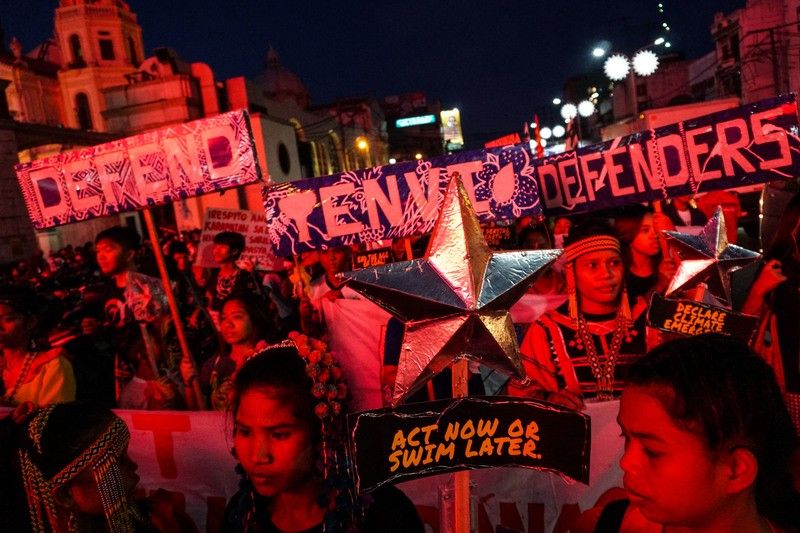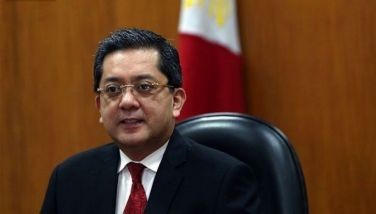Young female activists driving gender equality in Asia-Pacific — report

MANILA, Philippines — Girl-led activism in the Asia-Pacific region has become a necessary force for gender equality, a report by a global humanitarian and development organization found.
"Across the Asia-Pacific region, girls and young women are participating in youth activism for gender equality," The 2021 Asia-Pacific Girls Report by Plan International reads.
"Such efforts have proven successful in changing long-held discriminatory attitudes and beliefs related to gender and ensuring that girls are better able to use their voice and develop leadership capacities."
The report on young female leadership is a follow-up and expansion of a previous one first published in 2020 that included research from 19 countries in South and Southeast Asia.
The 2021 iteration now covers 33 countries across South Asia, Southeast Asia, and the Pacific.
It is also divided into these two parts:
-
researching girls’ civic engagement and activism for gender equality
-
measuring the leadership opportunities of adolescent girls and young women in the region
In its assessment of the former, the report concludes that "young women are mobilizing in both invited and claimed spaces at local, national and supranational levels to address different forms of power, promote their messages and facilitate connections."
"Within these different spaces, [they] are using a range of approaches to develop their civic engagement movements, lead their own initiatives, raise awareness, mobilize youth and influence public opinion."
Social media, other 'enabling factors' key to girls' civic engagement
Researchers also highlighted digital technologies and social media as key components to girls' successful civic engagement.
"Girls and young women use digital technologies to (1) mobilize online campaigns for gender-transformative change, (2) discuss gender equality and social inclusion through accessible digital platforms and (3) raise consciousness and expand awareness through social networking sites," they said.
Support from champions within institutions and policy-making spaces, family and friends and the use of a rights-based approach among organizations working with children were also identified as enabling factors to the civic engagement of girls.
Girls' Leadership Indexes
To measure the leadership opportunities for girls, researchers used Girls' Leadership Indexes, one for Asia and another for the Pacific, which take into account six different "core domains" to "provide valuable insight into the circumstances girls and young women have been facing over the past two years."
These core domains are education, health, economic opportunities, protection, political voice and representation, as well as laws and policies.
The index used in the Pacific also takes into account an additional climate change domain, which the organization identified as "a major concern in the region that exacerbates existing vulnerabilities for females."
The report notes that the climate domain may be added to future updates of the Asia Girls' Leadership Index as well.
Asia index finds 12 of 19 countries improved; Philippines in top 3
The 2021 Asia Girls' Leadership Index found that 12 of the 19 countries covered in South and Southeast Asia have "improved their values" compared to data from its 2020 report.
Four countries deteriorated while three remain unchanged.
The Philippines also received the third-highest index score (0.715), trailing after Thailand (0.733) and Singapore (0.784) which earned the highest mark.
Although the Philippines was in the top three of the rankings, it was one of three countries that remained unchanged since 2019, when data was collected for the 2020 report.
While it garnered a 1st place rank for the laws and policies domain, the Philippines was rated 13th in the domain of health.
Pakistan (0.392), Afghanistan (0.405) and Brunei Darussalam (0.462) ranked the lowest overall.
Pacific index: Australia highest overall, Nauru leads climate change domain
On the Pacific index, which includes a total of 14 countries, the three highest-ranking countries are Australia (0.854), New Zealand (0.820) and Kiribati (0.643).
The three lowest-ranking countries are Papua New Guinea (0.436), Marshall Islands (0.482) and Solomon Islands (0.529).
Nauru ranked highest in the climate change domain, trailed by New Zealand and then Palau. — Bella Perez-Rubio
- Latest
- Trending



























